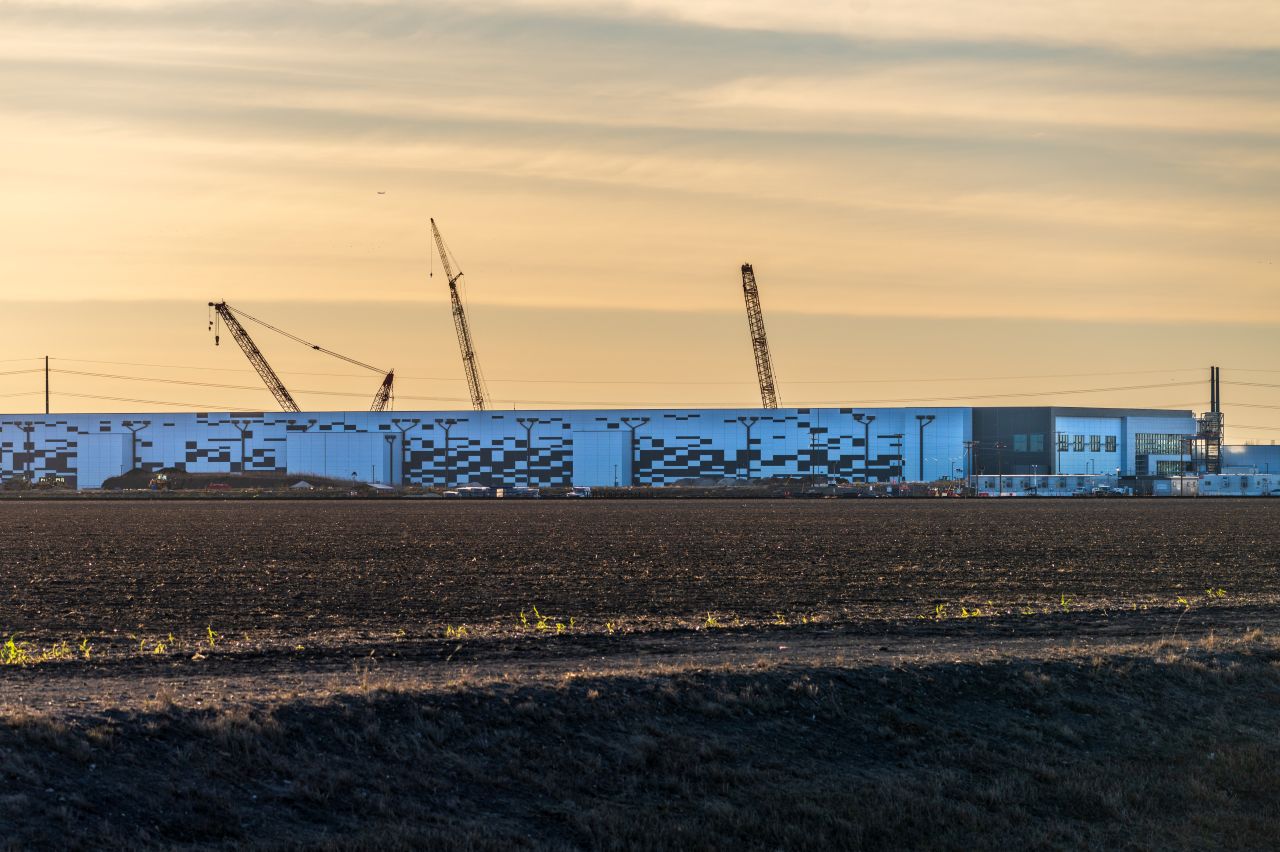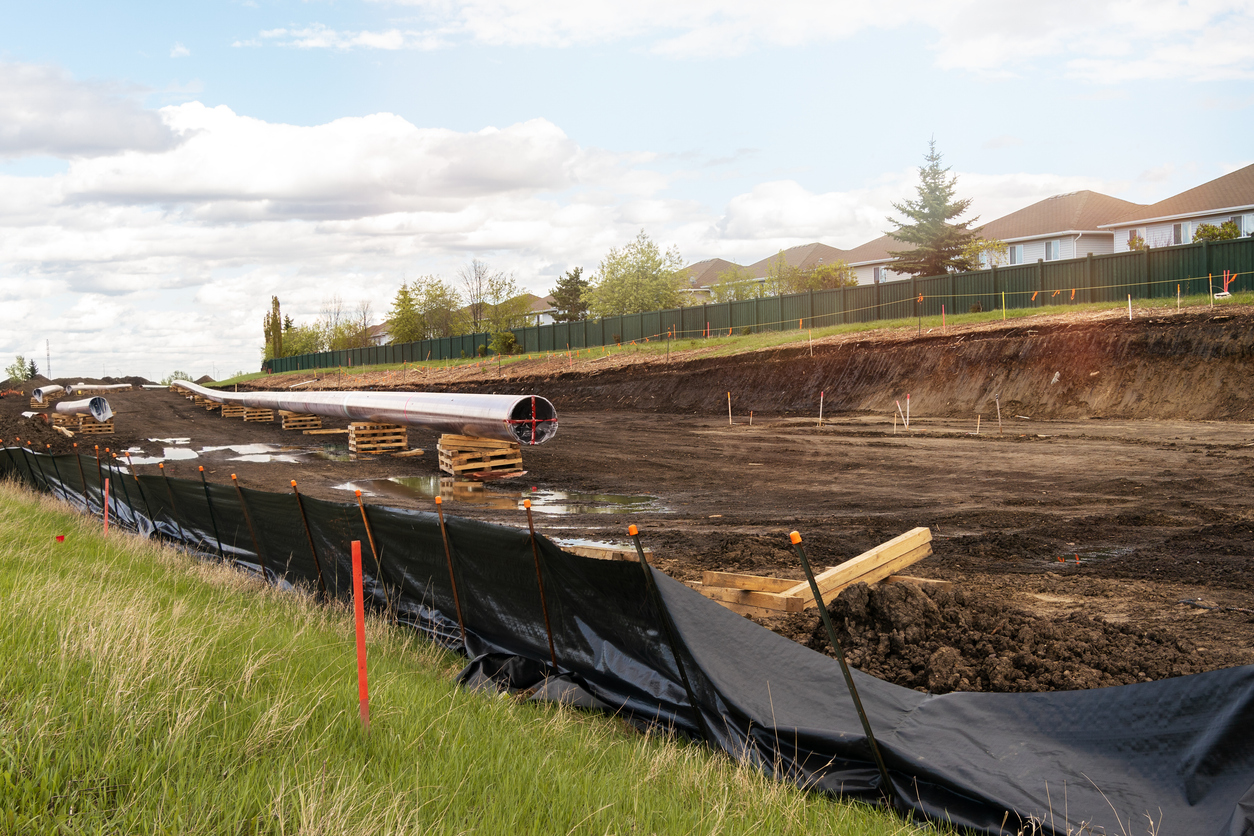PA bill would penalize local governments that move fracking away from homes

Last fall, the Board of Supervisors of Cecil Township, a suburb of Pittsburgh in Washington County, Pennsylvania, voted to increase the minimum setback distance of fracking wells from 500 feet to 2,500 feet away from homes and businesses.
Three days later, on Nov. 7, 2024, the state’s Republican Senators introduced legislation that would severely penalize communities like Cecil Township for taking action like this to protect their own residents from the pollution and noise of shale gas drilling.
Senate Bill 1346, which passed out of the Senate Environmental Resources and Energy Committee on May 7, would withhold funds meant to offset the impacts of oil and gas drilling from municipalities that pass increased setback ordinances. These “impact fees” are collected from the fracking industry and typically go towards improvements to roads and other infrastructure, emergency preparedness, and environmental protection programs.
Lois Bower-Bjornson, Southwestern Pennsylvania Field Organizer with Clean Air Council, said the senate bill is clearly a retaliatory action for Cecil Township’s ordinance.
“The lawmakers say Cecil Township is stopping fracking,” she said. “But they aren’t. These are simply protective measures to protect community members.”
State Senator Camera Bartolotta, a sponsor of the bill whose district includes Cecil Township, said the impact fees “were never intended for communities that actively block the responsible use of Pennsylvania's natural resources. My bill addresses this inequity.”
Many community members and citizen groups feel Bartolotta’s bill exacerbates the inequitable burden that fracking imposes on Pennsylvanians living nearby. The negative impacts associated with fracking often include water and air pollution, excessive noise, bright lights, vibrations and shaking of homes and other structures, truck traffic, and health impacts.
Gillian Graber, Executive Director of Protect PT (Penn-Trafford, in western PA), an organization established to protect communities from the harmful impacts of fossil fuel activity, said the legislation “simply bullies municipalities into accepting the harms of oil and gas in their backyards.”
“It’s unconscionable that our state legislators, who’ve taken an oath to uphold the state constitution, which includes a right to clean air and water, would put forth legislation like this,” said Graber. “It’s clear that the ones promoting the bill are beholden to industry instead of the people they are supposed to be serving.”
In October 2024, the Clean Air Council and the Environmental Integrity Project filed a rulemaking petition with the Pennsylvania Environmental Quality Board, which reviews and approves state environmental regulations, asking it to increase minimum setback distances from fracking wells. Setbacks, also referred to as protective buffers and no-drill zones, are mandatory distances that fracking wells must abide by to keep them separated from homes, schools, hospitals, drinking water wells, and surface water.
The groups relied on 42 recent, peer-reviewed scientific studies showing health harms under the current setbacks to demonstrate that Pennsylvania’s current fracking well location requirements—which include a waivable 500-foot setback distance from buildings and a 1,000-foot setback distance from water supply extraction points—are woefully insufficient to protect public health and the environment from the numerous dangers of fracking.
The allied organizations suggested a setback of at least 3,281 feet (1 kilometer) from any building or drinking water well and 5,280 feet (1 mile) from buildings serving vulnerable populations such as schools or hospitals based on the evidence of harm at various distances in the peer-reviewed studies.
“The research is clear that too many Pennsylvanians have suffered a decline in their health, quality of life, and property values as a result of oil and gas companies fracking too close to buildings, wells, and waters,” said Lisa Hallowell, Senior Attorney with the Environmental Integrity Project. “Pennsylvania agencies have a constitutional duty to heed the overwhelming evidence and increase minimum setbacks to protect the Commonwealth’s residents and natural resources from further peril.”
The dozens of peer-reviewed scientific studies cited in the groups’ rulemaking petition show that a person’s proximity to fracking wells is associated with severe human health risks and a wide range of ailments, including increased cancer rates, increased hospitalization rates, and higher rates of respiratory, neurological, dermatological, and muscular symptoms. Vulnerable populations are particularly susceptible—numerous studies have shown that proximity to fracking wells harms health for infants and children.
In April, the Environmental Quality Board voted 16-3 to table a motion to consider the petition to increase minimum setbacks, even though the Pennsylvania Department of Environmental Protection had recommended moving forward.
Jim Welty, president of the Pittsburgh-based Marcellus Shale Coalition, which advocates for the gas industry, released a statement thanking the board for postponing the vote and saying the setback petition “amounts to a direct ban on natural gas development in Pennsylvania.”
Graber said it’s “ludicrous” to compare setback ordinances like Cecil Township’s to bans on fracking.
“Lots of people are tired of living next to fracking,” she said. “Oil and gas [operators] have been able to do whatever they want without any public input for so long, that even if communities take a more moderate position, they respond with extreme talking points.”
In 2020, a statewide grand jury headed by then-Attorney General and now Governor Josh Shapiro determined that state agencies failed to protect Pennsylvanians from harms associated with fracking and included a recommendation to enact a 2,500-foot no-drill zone between fracking and homes, as well as a 5,000-foot no-drill zone for schools and hospitals.
In the fall of 2023, Governor Shapiro instructed the Pennsylvania Department of Environmental Protection to implement some of the grand jury recommendations for better protecting Pennsylvania residents from oil and gas operations, but notably did not include setbacks. A majority of the members of the Environmental Quality Board, which voted recently to table consideration of expanding setbacks, serve in the administration of Governor Shapiro. Since the state extended the minimum setback from homes and private water wells from 200 feet to 500 feet in 2012, there’s been little movement at the state level to further regulate the industry.
When Cecil Township passed their its expanded setback requirement, Michelle Stonemark, a Cecil Township resident who lives 530 feet from a Range Resources well pad, said she finally feels “like we’re going in the right direction.”
Shortly after beginning construction on her house just over a decade ago, a well pad was approved for construction just 530 feet from the property. Since then, Stonewall said she’s lived in “constant fear” of using her outdoor areas. The drilling vibrates her house, she said, and there are frequent loud noises during the day and at night.
Increases to the statewide, minimum setbacks distances are being sought to protect folks forced to live near these industrial operations, not ban fracking as industry claims. By their own admission, shale gas operators have already been drilling long laterals to reach gas from over five miles away, meaning the modest setbacks proposed in the rulemaking petition could be easily accommodated by industry to reach the same oil and gas locations.
The claim that increased no-drill zones would ban fracking is further disproven by the fact that the rulemaking petition submitted to the Environmental Quality Board not only includes a waiver provision but would also only apply to new, unconventional (fracking) oil and gas wells, meaning all existing wells could continue operating as they are now.
“After nearly two decades of shale gas well pad operations, the facts are abundantly clear that the current setback distances are not enough. It is disheartening that some Pennsylvania lawmakers, including those with a high incident of fracking in their districts, would dare to punish communities taking steps to protect their residents.” said Lisa Graves Marcucci, EIP’s community outreach coordinator. “The increased buffer zones are commonsense protections that are long overdue.”
Lead photo: Marcellus Shale rig and gas well operation in Butler County, Pennsylvania. Photo by WCN 24/7.















